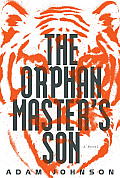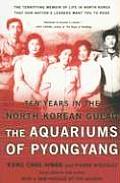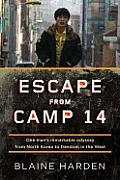
Deciding to make Kim Jong-il a character in my novel was not easy. I'll admit that when I began toying with material related to the DPRK, the early sketches reflected my fascination with the endless absurdities related to the Dear Leader, as he's known there. Sure, he has bouffant hair and elevator shoes and Rosey-the-riveter jumpsuits. But you don't have to look too far to come across truly astonishing accounts of the Dear Leader's behavior, as in the testimony of Kenji Fujimoto, who was Kim Jong-il's sushi chef and is the source of many amazing details from the Kim Dynasty, including the Dear Leader's love of jet skis, his fascination with the TV show
Iron Chef and the fact that the Kim kept a fluffy puppy around. Fujimoto also details Kim's
Kippumjo, or "joy division," a brigade of 2,000 beautiful women recruited for the sole purpose of fulfilling the Dear Leader's pleasures. It seemed, though, that the deeper the absurdities, the deeper the darkness, as when the Dear Leader had South Korean movie director Shin Sang-ok and his actor wife Choi Eun-hee kidnapped and imprisoned until they agreed to make a communist Godzilla movie that was possibly penned by the Dear Leader himself. The result was
Pulgasari.
 But as I read the testimonials of people who'd survived to defect, the appeal of the Dear Leader's eccentricities waned. Reading Kang Chol-hwan's Aquariums of Pyongyang brought home the depths of deprivation that hundreds of thousands experience daily in the DPRK. For a truly terrifying narrative, look for Shin Dong-hyuk's story in Escape from Camp 14, forthcoming from Viking. There are no end of such painful and moving tales online. I began looking at satellite images of kwan li so camps, which are North Korean prison mines. I read deeply of the floods and the famines of the late '90s. I read of deportations, torture sessions, forced abortions, and I stared endlessly at Google Earth images of mass graves. Imbued with a growing sense of mission, the humorous anecdotes of the Kim regime fell away. I often teach my students that, since those with important stories to tell are often least able to do so, writers have a duty to tell the stories of others. I began to feel that duty, and since it's impossible for North Koreans to tell their own stories (for now, at least), and since most of the nonfiction books focused on large political, military, or social issues, I knew that fiction would be the only way to get to the lost humanity of the North Korean people.
But as I read the testimonials of people who'd survived to defect, the appeal of the Dear Leader's eccentricities waned. Reading Kang Chol-hwan's Aquariums of Pyongyang brought home the depths of deprivation that hundreds of thousands experience daily in the DPRK. For a truly terrifying narrative, look for Shin Dong-hyuk's story in Escape from Camp 14, forthcoming from Viking. There are no end of such painful and moving tales online. I began looking at satellite images of kwan li so camps, which are North Korean prison mines. I read deeply of the floods and the famines of the late '90s. I read of deportations, torture sessions, forced abortions, and I stared endlessly at Google Earth images of mass graves. Imbued with a growing sense of mission, the humorous anecdotes of the Kim regime fell away. I often teach my students that, since those with important stories to tell are often least able to do so, writers have a duty to tell the stories of others. I began to feel that duty, and since it's impossible for North Koreans to tell their own stories (for now, at least), and since most of the nonfiction books focused on large political, military, or social issues, I knew that fiction would be the only way to get to the lost humanity of the North Korean people.
 Yet the more I researched, the more I came to understand that Kim Jong-il was the black hole that warped all the reality around him. All the mythology was of his creation. He wrote the dark script of an entire nation. Nothing happened without his influence. The more I understood that the stories of 24 million people were scripted by one man, the more I came to realize that, to understand North Korea, the reader would have to understand this one person. I'd have to depict him not as a clown or a despot but as a real human, with weaknesses and vulnerabilities. A Frontline documentary about Madeleine Albright's visit to Pyongyang in 2000 was a great early inspiration. She spoke of how, far from being crazy, Kim was crafty, cunning, and filled with pranksterish humor. She described how he planned a surprise gymnastic event for her to witness, how she was driven into the darkened May Day Stadium in Pyongyang, and how, when the lights flashed on, 100,000 gymnasts performed for her personal delight. That was the man I soon understood I'd have to capture if the novel was going to work.
Yet the more I researched, the more I came to understand that Kim Jong-il was the black hole that warped all the reality around him. All the mythology was of his creation. He wrote the dark script of an entire nation. Nothing happened without his influence. The more I understood that the stories of 24 million people were scripted by one man, the more I came to realize that, to understand North Korea, the reader would have to understand this one person. I'd have to depict him not as a clown or a despot but as a real human, with weaknesses and vulnerabilities. A Frontline documentary about Madeleine Albright's visit to Pyongyang in 2000 was a great early inspiration. She spoke of how, far from being crazy, Kim was crafty, cunning, and filled with pranksterish humor. She described how he planned a surprise gymnastic event for her to witness, how she was driven into the darkened May Day Stadium in Pyongyang, and how, when the lights flashed on, 100,000 gymnasts performed for her personal delight. That was the man I soon understood I'd have to capture if the novel was going to work.